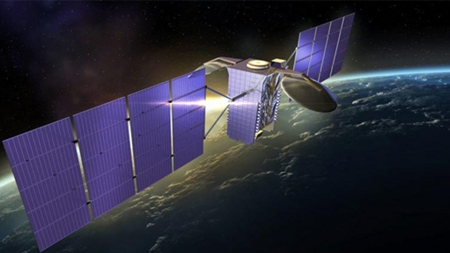200 Technologies Required in the Aviation Field of the Country Will Be Developed
200 Technologies Required in the Aviation Field of the Country Will Be Developed

According to the public relations and information center of the Vice-Presidency for science and technology affairs, Manouchehr Manteghi, chairman of Iran national space administration, presented a report on the current situation of Iran in terms of aviation field in the third meeting of strategic monitoring of the comprehensive document for development of aerospace in the country, stating: designing of a space program with an emphasis on creating abilities and being present in the space and in the path of development of aerial technology in the country has been initiated since 2006.
He considering the implementation duration of this program to be 2006-2015, expressing: the second space program will be during 2016-2025, which will emphasize the institutionalization of creating of abilities and presenting basic and general services.
Manteghi added: the third 10-year aerial program will be initiated in 2026 and will be implemented until 2035. The main axis of this program is sustainable universal coverage services.
He also pointed out the executed projects in this field, asserting: the “Sina” satellite was the first aerial project of Iran, which was implemented with the joint cooperation of Russia. Another satellite was “Mesbah”, implemented in cooperation with Italy.
Chairman of Iran national space administration introduced the mission of this satellite to be communication.
Manteghi named the first remote-sensing satellite of the country “Rasad”, stating: the satellite has a resolution of 150 meters. The second remote-sensing satellite is also “Navid”.
Chairman of Iran national space administration emphasized that 200 technologies are required to implement these projects in the aerial section of the development of the country, expressing: efforts have been made in the satellite carrier section as well, in a way that the “Navid” satellite was launched by Safir B-1 satellite carrier.
Manteghi introduced the “design and manufacturing of probes”, “native space detection systems”, “space detection systems” and “propulsion” as other developed technologies in the country.
According to the chairman of Iran national space administration, some of successful areas of the country in this field include telemetry stations and satellite command, receiving images from satellites and stations for measuring the position of orbital satellites from ground-based infrastructure.
Manteghi also pointed out that to date, 22 research projects in the area of spatial applications have been implemented in the country in cooperation with science and research centers. In this regard, he continued: in addition, 434 student final theses in various academic levels have been implemented in the area of spatial applications.
Manteghi talked about the current condition of Iran in the spatial technology in the region, marking: we have aimed to perform leveling in various sections to better understand the situation of Iran among the regional countries.
He continued: Iran has ranked second in the region in terms of launch and infrastructures, second in terms of exploration science, fifth regarding remote sensing, seventh regarding telecommunication, fifth in terms of satellite technologies and second regarding navigation.
Chairman of Iran national space administration pointed out the future plans in the spatial area, affirming: two future scenarios in this section include “affordability to perform spatial projects” and “realization of requirements of the comprehensive development document”.

comment